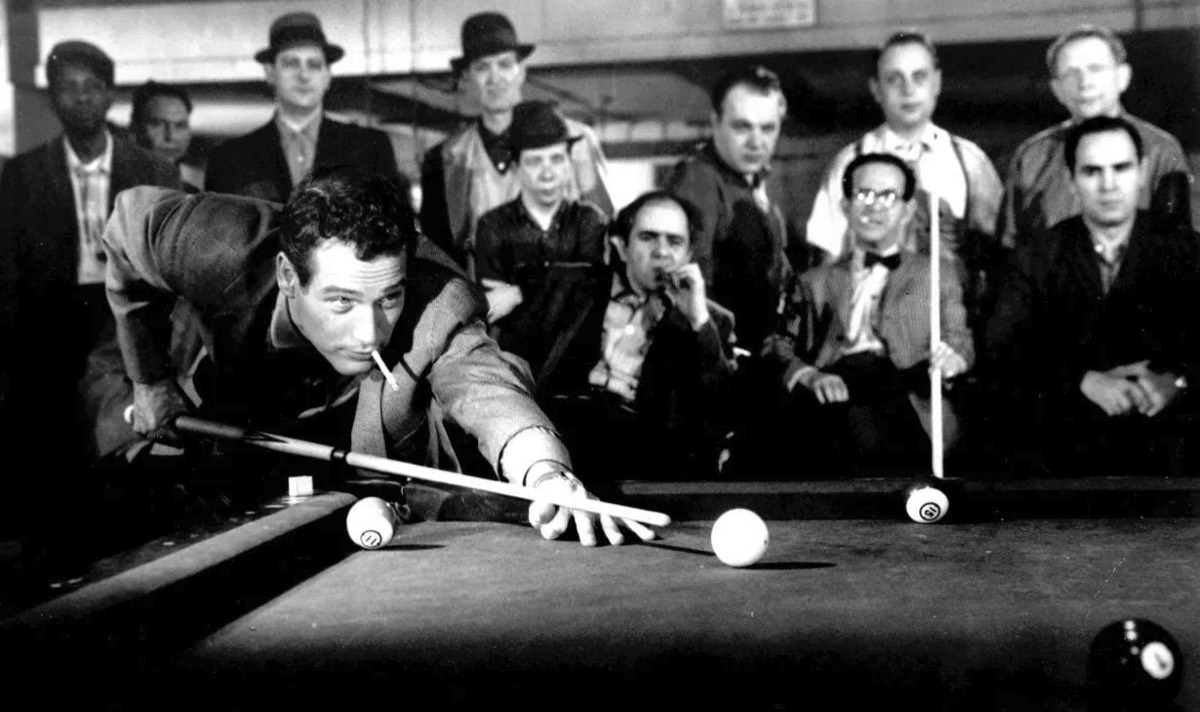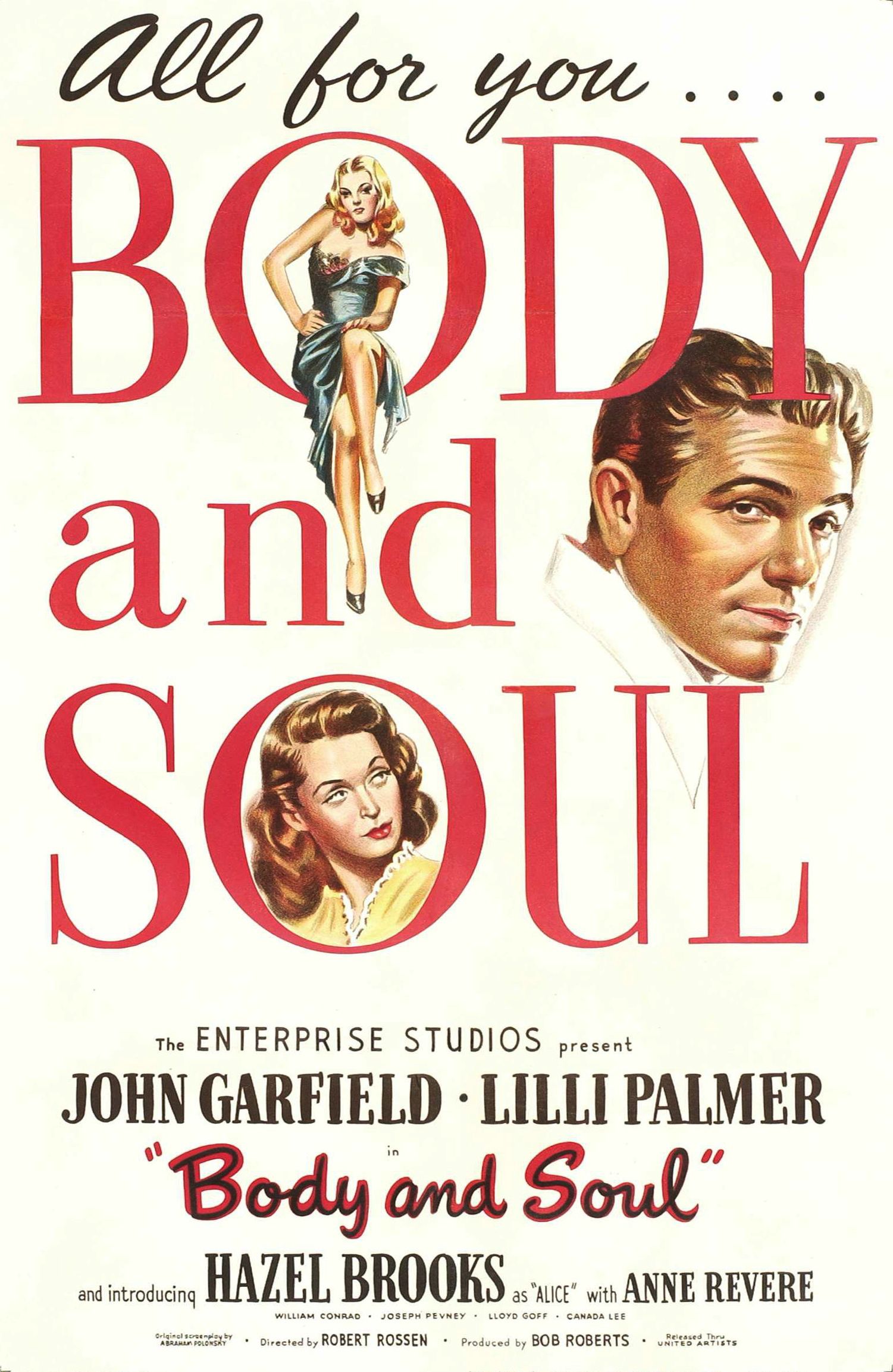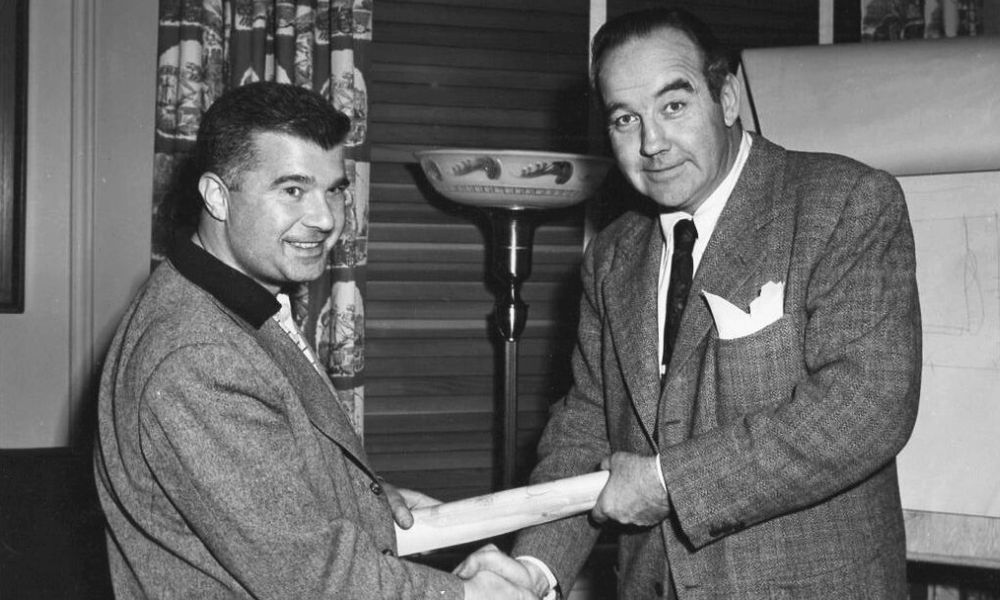"Gifted American director and writer who, at his best, accurately mirrored the essential American need to succeed and the corruption that follows in its wake: most importantly in the study of political megalomania, All the King's Men (1949), for which he won an Academy Award, but equally vividly in Body and Soul (1947), which rejuvenated the cliché boxing film formula, and the The Hustler (1961)." - Margaret Hinxman (The International Encyclopedia of Film, 1972)
Robert Rossen
Director / Screenwriter / Producer
(1908-1966) Born March 16, New York City, New York, USA
(1908-1966) Born March 16, New York City, New York, USA
Key Production Country: USA
Key Genres: Drama, Crime, Film Noir, Psychological Drama, Political Drama, Thriller, Romance, Sport, History, War, Sports Drama, Action-Adventure
Key Collaborators: Burnett Guffey (Cinematographer), Eugen Schüfftan (Cinematographer), Al Clark (Editor), Kenyon Hopkins (Composer), Cary Odell (Production Designer), Jim Bannon (Character Actor)
Key Genres: Drama, Crime, Film Noir, Psychological Drama, Political Drama, Thriller, Romance, Sport, History, War, Sports Drama, Action-Adventure
Key Collaborators: Burnett Guffey (Cinematographer), Eugen Schüfftan (Cinematographer), Al Clark (Editor), Kenyon Hopkins (Composer), Cary Odell (Production Designer), Jim Bannon (Character Actor)
"A talented writer-director-producer who made hard-hitting, socially conscious films during the late 1930s through the early 1950s but was crippled artistically by the politics of the McCarthy era. Rossen continued to make films until his death, but with just a couple of exceptions, his career was never the same after his run-in with the House Un-American Activities Committee in 1951… It was not until the early 1960s that he regained some of the fire of his earlier years, writing, producing and directing the highly regarded hit The Hustler (1961), as well as Lilith (1964), which was the last film he made." - The Encyclopedia of Hollywood, 2004
"Blacklisted during Hollywood’s House Un-American Activities Committee hearings in the 1940s and 50s and then vilified for naming names, Robert Rossen has been largely neglected in the annals of critical and popular film – his legacy still hidden within the dark, embarrassing hole in Hollywood’s past… Rather than focusing on any central protagonist, he cast complex nets of characters linked by unusual, unclear relationships within the rigid boundaries of their economic and social environments. Often illustrated in dynamic visual arrangements, he respectfully treated men and women, predators and prey, with the same depth of development – even minor characters make indelible appearances in a Rossen film." - Brittany Gravely (Harvard Film Archive, 2013)

The Hustler (1961)
"Although Robert Rossen directed his first film in 1946, his career is rooted in the great days of action-packed, New Deal liberalism at Warners, where he scripted, among other films, They Won't Forget (1937) and The Roaring Twenties (1939). That ideological context is still apparent in his own early films. Body and Soul (1947) and All the King's Men (1949) show Rossen (like Losey, Abraham Polonsky or Richard Brooks, at the same time) trying to work out a new key for attitudes which the American post-war scene was fast rendering obsolete, but which still retained much of their intellectual relevance for them." - Edgardo Cozarinsky (Cinema: A Critical Dictionary, 1980)
"Rossen’s relentless pursuit of authenticity led to collaborations with real-life figures relevant to his storylines, such as pool champion Willie Mosconi in The Hustler. His meticulous attention to detail, combined with a willingness to explore controversial subjects, allowed him to craft films that were intellectually stimulating and emotionally resonant." - Bronze Screen Dream
"Rossen favored intelligent psychological stories in realistic settings, but that is a long way from political preoccupation, and shows how tentative the “Marxist” element in American cinema has always been. They Won’t Forget is a more blatant criticism of American society than any of Rossen’s own films. Body and Soul, written by Polonsky and starring Garfield, is an honest boxing story, but its view of corruption was itself conventional and comfortable. Even All the King’s Men, based on Robert Penn Warren’s novel about a Southern demagogue, contents itself with melodrama, unfamiliar, real locations, and a bravura performance from Broderick Crawford." - David Thomson (The New Biographical Dictionary of Film, 2010)
"Technique is nothing compared to content." - Robert Rossen, Cahiers du Cinéma
Selected Filmography
{{row.titlelong}}
GF Greatest Films ranking (★ Top 1000 ● Top 2500)
T TSPDT N 1,000 Noir Films
R Jonathan Rosenbaum S Martin Scorsese
T TSPDT N 1,000 Noir Films
R Jonathan Rosenbaum S Martin Scorsese
Robert Rossen / Fan Club
Carlos Boyero, Borja Cobeaga, José Luis Guarner, Jeff Nichols, Sergio Grmek Germani, Eithne O'Neill, João Lopes, Arash Khoshkhoo, Paulo Branco, Martin Scorsese, Michael Phillips, Farran Smith Nehme.
Carlos Boyero, Borja Cobeaga, José Luis Guarner, Jeff Nichols, Sergio Grmek Germani, Eithne O'Neill, João Lopes, Arash Khoshkhoo, Paulo Branco, Martin Scorsese, Michael Phillips, Farran Smith Nehme.
"Fan Club"
These film critics/filmmakers have, on multiple occasions, selected this director’s work within film ballots/lists that they have submitted.
These film critics/filmmakers have, on multiple occasions, selected this director’s work within film ballots/lists that they have submitted.


